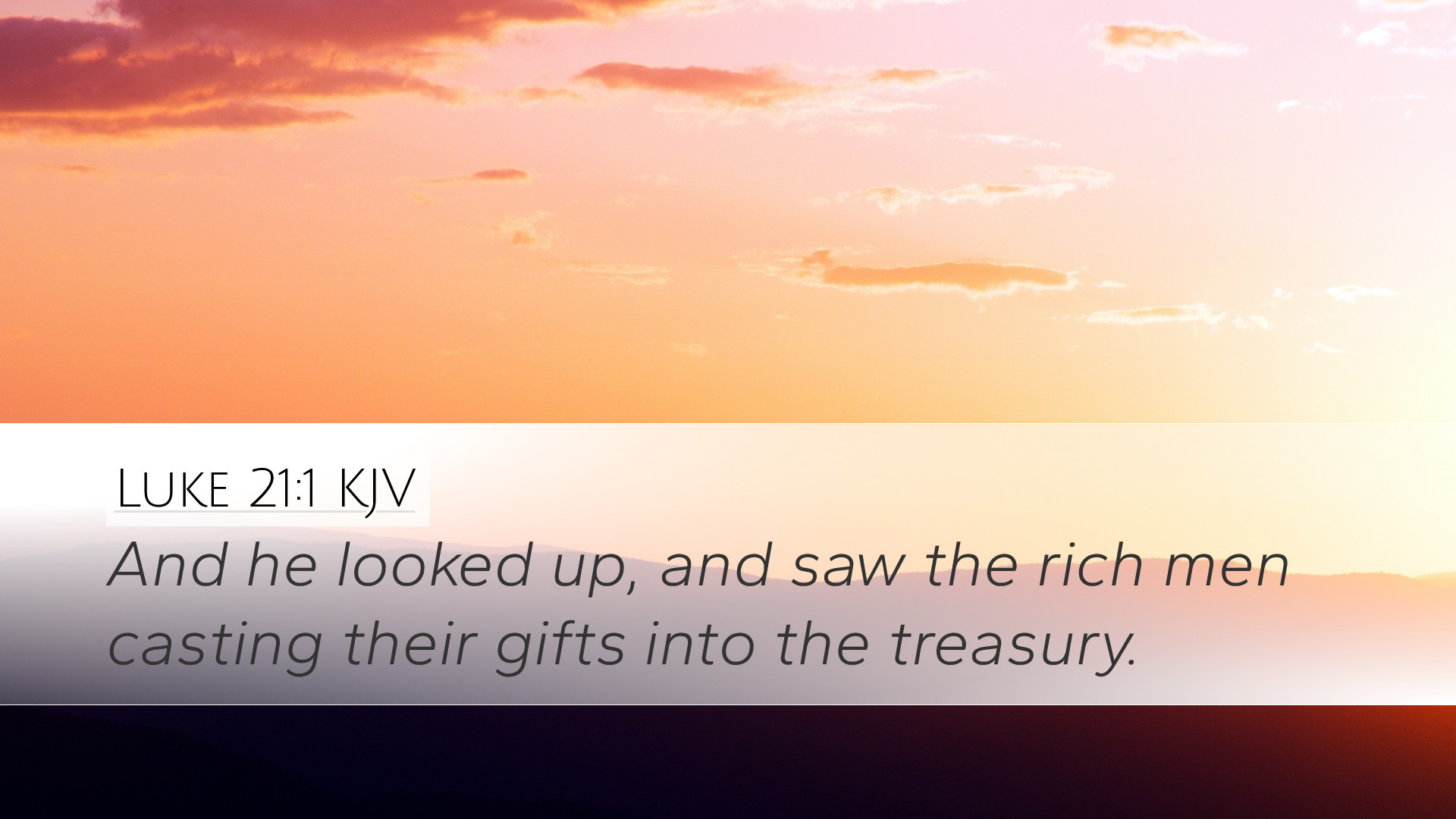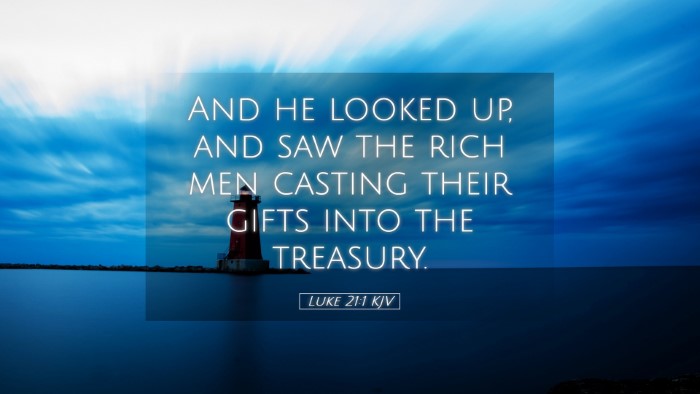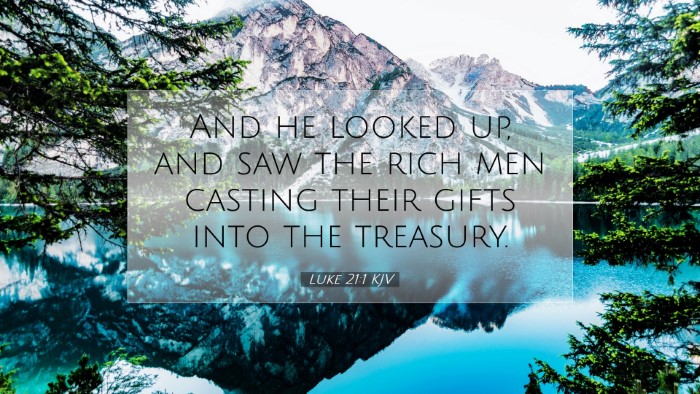Commentary on Luke 21:1
Luke 21:1 states, "And he looked up, and saw the rich men casting their gifts into the treasury." This verse begins a profound discourse on giving, wealth, and the intentions of the heart, as emphasized by prominent biblical scholars.
Contextual Background
This passage occurs in the last week of Jesus's life, as He approaches the events leading to His crucifixion. Luke places great importance on the teachings Jesus imparts during this time, focusing on the nature of true discipleship and the dangers of materialism.
Interpretative Insights
-
Matthew Henry's Commentary:
Henry observes that Jesus’s act of looking up signifies His awareness of the ongoing temple activities. He notes, "Christ, who had all riches in Himself, took note of the poor offerings of those who were poor in spirit." This reflects God's discernment of heart over mere monetary value, highlighting the spiritual condition of the giver.
-
Albert Barnes’s Notes:
Barnes points out the significance of the act in juxtaposition with the previous discussions on the hypocrisy within the religious framework. He states, "It was a demonstration of the great moral principle that the value of a gift is proportional to the spirit in which it is given, not merely the amount." Here, the emphasis lies on the attitude towards giving rather than the quantity.
-
Adam Clarke’s Commentary:
Clarke discusses the location of this observation, asserting that Jesus watches the rich donate extravagantly to highlight a contrast with impending lessons about true generosity. He writes, "He who is poor in spirit and gives freely is greater than the one who gives camouflaged by riches." This underlines the forthcoming contrast in verse 2 with the widow's might.
Theological Implications
The narrative extends beyond a mere observation; it confronts the prevailing attitudes toward wealth. The discrepancies between the rich benefactors and the poor widow signify a theological critique of how wealth can cloud one's understanding of stewardship.
-
Stewardship vs. Sacrifice:
The rich men’s contributions showcase a superficial adherence to religious duties whereas the widow represents a radical commitment, thereby teaching that true giving often entails sacrifice.
-
Heart Conditioning:
This verse prompts readers to reflect on spiritual self-examination. What does our giving reveal about our faith? Are we giving out of obligation or devotion?
-
Faith and Generosity:
Barnes further notes that true generosity comes from faith and the willingness to give sacrificially, regardless of one’s financial status.
Practical Applications for Ministry
For pastors and theologians, this passage invites several applications:
- Encouraging True Generosity: Encouraging congregants to give with intention rather than out of a sense of duty can foster a more profound community spirit.
- Preaching on Heart Attitudes: Sermons should focus on the heart's condition when giving, emphasizing the importance of humility and dependence on God.
- Discipleship: Cultivating discipleship programs that explore God’s perspective on resources and stewardship can deepen congregational understanding.
Conclusion
Luke 21:1 delves into the intricacies of human intentions behind financial giving. By evaluating the surface-level actions of the rich against the sacrificial nature of the widow’s offering, it challenges modern interpretations of generosity, prompting deeper introspection into one's spiritual journey.
As pastors, students, and scholars reflect upon this observation, the takeaway resonates: to be mindful of the true spirit of giving, where love for God and neighbor outweighs the clanging cymbal of mere financial contribution.


